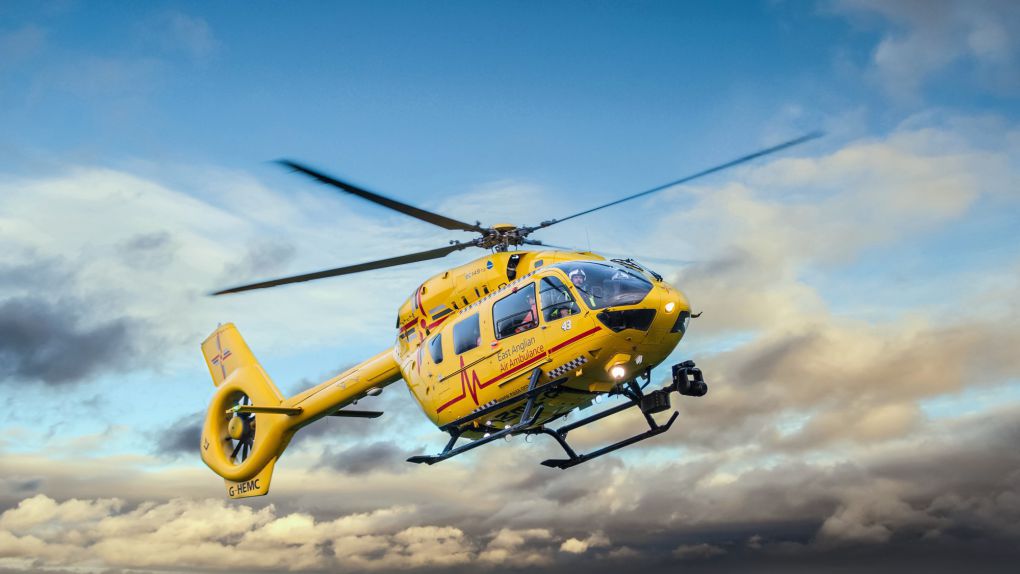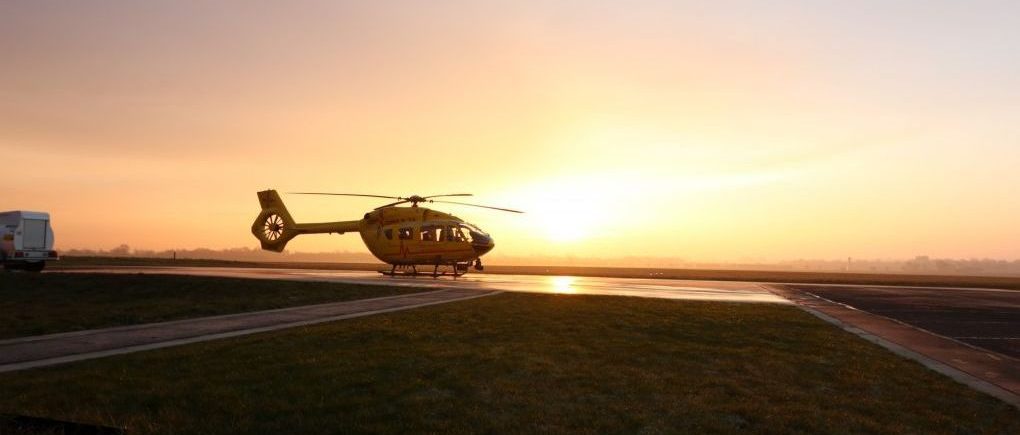Support for bystanders
The specialist practical and emotional support offered by EAAA’s dedicated team of Aftercare clinicians is not just available to former patients, family and friends; this support also extends to members of the public who witness medical emergencies, and can prove invaluable.

Caroline has accessed EAAA's bystander support
Caroline was enjoying a bright winter’s day when she was a bystander at an incident attended by East Anglian Air Ambulance (EAAA). It has had a profound effect on her, and she has kindly shared how the charity supported her in the moments afterwards – and continues to do so through EAAA’s dedicated Aftercare service.
“It was a gorgeous, sunny afternoon when the incident occurred,” Caroline explains. “The EAAA crew who attended, Dr Neil Berry in particular, were my first contact at a time when I was extremely emotional and vulnerable.”
Caroline says that Dr Neil took the time to explain to her what had happened in a way that she could understand.
“He showed such compassion. Significantly, he said that if I felt that I didn’t need to get support, then that was a sign that I actually did.”
Before the crew left, Dr Neil handed Caroline a card. It’s something which is given by EAAA clinicians to patients, loved ones and bystanders at the scene of medical emergency. It lists the names of the attending crew and the contact details of the EAAA Aftercare service in case they wish to receive some support.

I keep this card on my fridge, as it means a lot to me and always brings such comfort.

— Caroline
EAAA was tasked by air and road to over 2,800 missions in 2022-23. In a time when the charity is busier than ever, EAAA’s Aftercare service, delivered by a specialist team of clinicians, supports patients, family and friends following an incident in which our crews provided care. It offers specialist emotional and practical support to those who may have been involved. It can be shocking and traumatic to witness a medical emergency, so this support extends to bystanders too.
Caroline explains: “I was out for coffee the next day with my daughter when I received a phone call from one of the Aftercare clinicians. We then spoke on several different occasions, and she was so understanding. She listened and helped to answer some of my questions and reassured me that everything I was feeling was expected and normal.”
Caroline still talks to the Aftercare team; they chat about everyday things as well as the incident during their regular check-ins and Caroline says it’s nice to have a voice at the end of the phone. “It’s a sounding post and I’m happy I can talk to them.”

It may often go unnoticed to the public, but it’s a key element of the vital help provided by supporters of EAAA. In 2022-23, the Aftercare service connected with over 450 patients. The support provided can range from simple chats on the phone, to arranging meetings with the crews who treated the patient on scene, home visits, providing access to free legal advice and connecting to other organisations who can support a variety of needs.
“I never knew there was such a thing,” Caroline continues. “I simply thought that the air ambulance came, and it went. It’s a remarkable job that it does, but this extra support offered is very important – and you probably won’t know it exists until you need to use it yourself.

The incident I saw had a huge impact on me. I haven’t been myself since, and while I’m grieving for the person I used to be, the EAAA Aftercare team continue to provide support.

— Caroline